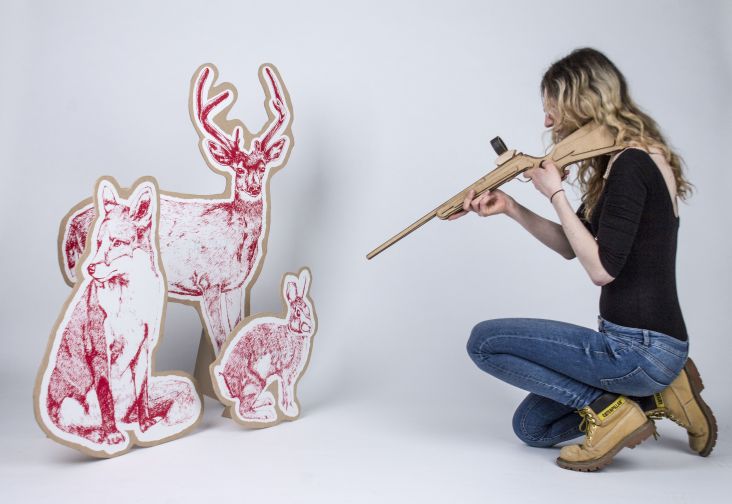Essential checklist of 140 words you could be getting wrong and that spellcheck might miss
Are you making subtle but perceptible mistakes in your writing? Suffering from stuff spellcheck won’t pick up? Are you looking naïve in your pitches and emails?

Image licensed via Adobe Stock
It’s a complex beast, the English language. Forever evolving, like literally, it can be challenging to keep up with what means what. Such as that guy on Channel 4’s entertaining reality show First Dates, who reckoned it a huge compliment to tell a girl ‘your eyes are ridiculous,’ before upping the ante and exposing her teeth were ridiculous too. He was ridiculous. Like, literally.
To help you out, we’ll now take a look at the 140 most commonly confused words in the English language.
Mistakes you've probably made – or are making right now
1. Adverse / Averse
Adverse: not good
Averse: not liking, keen to avoid
2. Accept / Except
Accept: to get or take on board
Except: does not include
3. Affect / Effect
Affect: make a change or difference
Effect: a result, creating a result
4. All together / Altogether
All together: everything in one place
Altogether: completely, overall
5. Amoral / Immoral
Amoral: does not give a damn about right or wrong
Immoral: not in line with moral standards
6. Canvas / Canvass
Canvas: tent material
Canvass: drum up votes
7. Climactic / Climatic
Climactic: building up to a climax
Climatic: about the climate
8. Complement / Compliment
Complement: add to and improve
Compliment: show admiration
9. Council / Counsel
Council: people who advise or manage
Counsel: advice or advising
10. Defuse / Diffuse
Defuse: reduce tension
Diffuse: spread out, in a large area
11. Discreet / Discrete
Discreet: on the down-lo, hidden
Discrete: distinct, separate
12. Disinterested / Uninterested
Disinterested: impartiality, not biased
Uninterested: has no interest
13. Exercise / Exorcise
Exercise: gym stuff, or put in action
Exorcise: kill a ghost or demon
14. Flounder / Founder
Flounder: act clumsy, or find something hard
Founder: to fail
15. Grisly / Grizzly
Grisly: gruesome, horrific
Grizzly: big bear
16. Hoard / Horde
Hoard: store Horde: a big crowd
17. Imply / Infer
Imply: suggest but not directly
Infer: make a conclusion
18. Loath / Loathe
Loath: not willing, reticent
Loathe: hate
19. Meter / Metre
Meter: device, i.e. water or gas meter
Metre: a unit of length or rhythm of a poem
20. Practice / Practise
Practice: use of an idea, method - and where a dentist etc. works
Practise: to do something repeatedly to get better, or do something often, e.g. practise what you preach
21. Principal / Principle
Principal: #1 in importance; the boss of a school
Principle: rule or belief
22. Stationary / Stationery
Stationary: motionless
Stationery: office materials
23. Titillate / Titivate
Titillate: arouse interest
Titivate: spruce up, make attractive
24. Tortuous / Torturous
Tortuous: complex, or twisting
Torturous: laden with suffering, painful
And there's more...According to the Oxford University Press, many people struggle with misusing these words, too
25. Advise / Advice
Advise: make recommendations
Advice: the recommendations themselves
26. Aisle / Isle
Aisle: space between the seats or supermarket shelves
Isle: Island, e.g. the Isle of Wight
27. Aloud / Allowed
Aloud: out loud
Allowed: permitted
28. Altar / Alter
Altar: holy table in a church
Alter: change
29. Appraise / Apprise
Appraise: make an assessment
Apprise: to give someone info
30. Assent / Ascent
Assent: an agreement, e.g. royal assent
Ascent: rising or climbing
31. Aural / Oral
Aural: re. ears, or hearing
Oral: re. mouth, or speech
32. Balmy / Barmy
Balmy: t-shirts and shorts weather
Barmy: mad as a box of frogs
33. Bare / Bear
Bare: strip, or stripped
Bear: carry a load (bear with me); grizzly bear, teddybear
34. Bated / Baited
Bated: as in 'with bated breath', i.e. the suspense is killing me
Baited: bait is attached
35. Bazaar / Bizarre
Bazaar: market, souk
Bizarre: weird
36. Berth / Birth
Berth: a shelf to sleep on
Birth: when a baby pops out
37. Born / Borne
Born: a life begun
Borne: carried
38. Bough / Bow
Bough: thin branch of a tree
Bow: to bend the head; the front of a ship
39. Brake / Break
Brake: pedal of a slowing car, stop
Break: divide or pause
40. Breach / Breech
Breach: break a rule or break-in
Breech: part of a gun
41. Broach / Brooch
Broach: to raise a topic for discussion
Brooch: jewellery
42. Censure / Censor
Censure: criticise heavily
Censor: to ban, obscure; and also the person doing it
43. Cereal / Serial
Cereal: corn, maize etc.; also Cornflakes etc.
Serial: episodic
44. Chord / Cord
Chord: music notes
Cord: length of rope-like material (or body part)
45. Coarse / Course
Coarse: rough to feel
Course: path; series of class; part of a meal
46. Complacent / Complaisant
Complacent: self-satisfied
Complaisant: wants to please
47. Cue / Queue
Cue: signal for action; snooker tool
Queue: wait in line, or the line itself
48. Curb / Kerb
Curb: keep in control
Kerb: (chiefly British) edge of the pavement
49. Currant / Current
Currant: raisin-like sticky fruit
Current: now; a flow of air, water or electricity
50. Desert / Dessert
Desert: to abandon; big sandy thing
Dessert: pudding, e.g. cheesecake
51. Draught / Draft
Draught: air current
Draft: re. writing, i.e. first draft, final draft etc.
52. Draw / Drawer
Draw: when scores are tied
Drawer: for storage, e.g. sock drawer
53. Dual / Duel
Dual: with two parts
Duel: head-to-head competition, fight
54. Elicit / Illicit
Elicit: to draw out a reaction
Illicit: illegal, hooky
55. Ensure / Insure
Ensure: make it happen
Insure: to make good a loss; prepare financial compensation
56. Envelop / Envelope
Envelop: surround or wrap
Envelope: what letters come in
57. Flaunt / Flout
Flaunt: ostentatiously show off
Flout: disregard the rules
58. Forbear / Forebear
Forbear: hold back, refrain
Forebear: ancestor
59. Foreword / Forward
Foreword: intro
Forward: ahead
60. Freeze / Frieze
Freeze: make ice
Frieze: decoration along a wall
61. Loose / Lose
Loose: make less tight
Lose: the act of losing
62. Militate / Mitigate
Militate: stand firmly against
Mitigate: reduce the severity
63. Palate / Palette
Palate: roof of the mouth
Palette: artist's mixing board
64. Pedal / Peddle
Pedal: part of a bike or car
Peddle: sell stuff
65. Pole / Poll
Pole: long thin lump of wood/metal/plastic
Poll: vote
66. Pour / Pore
Pour: flow or make a flow
Pore: small opening; study very closely
67. Prescribe / Proscribe
Prescribe: authorise or order
Proscribe: officially forbid, outlaw
68. Sceptic / Septic
Sceptic: the doubter
Septic: filled with harmful bacteria
69. Sight / Site
Sight: the ability to see
Site: location
70. Storey / Story
Storey: level in a building
Story: a tale with a narrative
With thanks to the Oxford English Dictionary, a true tool of the trade, a cache of words so magnificent that it would take a single data entry clerk 120 years to type it out (that’s 59 million words, in the second edition release in 1989).




 by Tüpokompanii](https://www.creativeboom.com/upload/articles/58/58684538770fb5b428dc1882f7a732f153500153_732.jpg)

 using <a href="https://www.ohnotype.co/fonts/obviously" target="_blank">Obviously</a> by Oh No Type Co., Art Director, Brand & Creative—Spotify](https://www.creativeboom.com/upload/articles/6e/6ed31eddc26fa563f213fc76d6993dab9231ffe4_732.jpg)

















